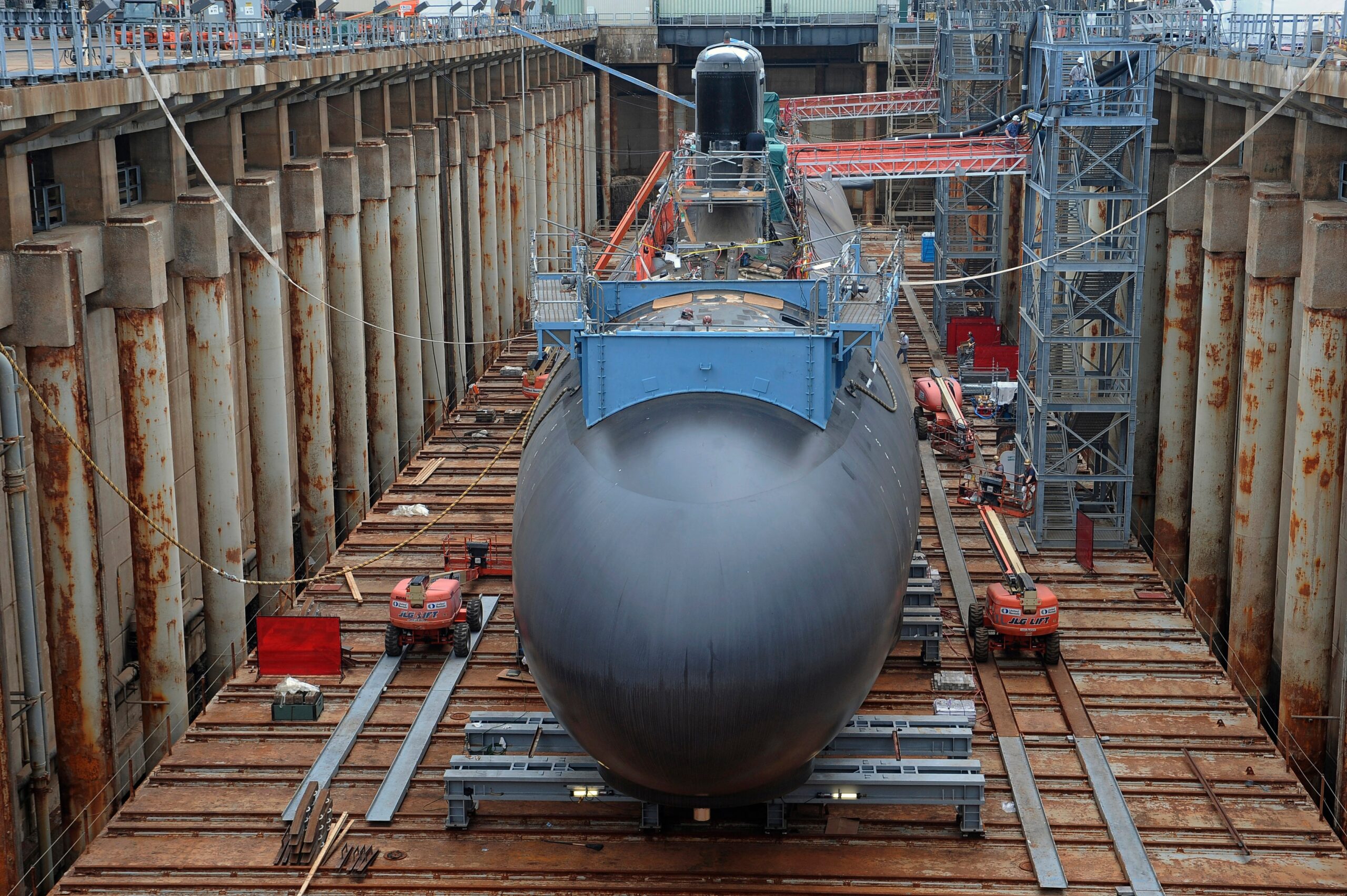WASHINGTONU. As the Pentagon examines the deal and takes into account the concerns it has raised regarding the shipbuilding capabilities of the American industrial infrastructure, U.S. lawmakers from both parties are pleading with the Trump administration to uphold a three-way security partnership intended to provide Australia with nuclear-powered submarines.
The Defense Department said two weeks ago that it would examine AUKUS, the four-year-old agreement that the Biden administration struck with the United Kingdom and Australia. The declaration indicates that the Republican administration is closely examining an alliance that many consider essential to the U.S. effort to counter China’s influence in the Indo-Pacific. It is anticipated that the review will be finished in the fall.
Suggested Videos
In a July 22 letter to Defense Secretary Pete Hegseth, Republican Representative John Moolenaar of Michigan and Democratic Representative Raja Krishnamoorthi of Illinois stated that “AUKUS is crucial to bolstering deterrence in the Indo-Pacific and advancing the undersea capabilities that will be central to ensuring peace and stability.” The House panel on China is chaired by Moolenaar, and its leading Democrat is Krishnamoorthi.
As the Trump administration struggles with a depleted industrial base that has hindered U.S. capacity to construct adequate warships, the assessment comes as it attempts to refocus its worries about global security. Elbridge Colby, the No. 3 Pentagon official leading the study, has voiced doubts about the collaboration.
It would be fantastic if we could build enough attack submarines quickly enough. “But that becomes a very difficult problem if we can’t,” Colby stated at his March confirmation hearing. In order to avoid having to make these terrible decisions and to be in a position where we can produce for both ourselves and our allies, we need to return to recovering our defense industrial capability.
The US cannot produce enough ships.
The United States will sell three to five Virginia-class nuclear-powered submarines to Australia as part of the $269 billion AUKUS cooperation; the first delivery is expected to occur as early as 2032. In order to create an eight-boat force for Australia, the United States and the United Kingdom would assist Australia in designing and constructing an additional three to five attack submarines.
According to a March assessment by the Congressional Research Service, the much-lauded relationship is in danger due to the United States’ inadequate shipbuilding capabilities, which include a shortage of workers and inadequate supply chains. According to the paper, the U.S. Navy would experience a two-decade attack submarine shortfall if the U.S. were to sell the ships to Australia.
According to the research, U.S. shipyards have only been constructing 1.2 Virginia-class subs year since 2022, despite the Navy ordering two boats annually for the past ten years.
Admiral Daryl Caudle, the nominee for the position of Chief of Naval Operations, told the Senate Armed Services Committee last month that the delivery pace is not where it needs to be in order to fulfill the first pillar of AUKUS.
The U.S. submarine industrial base has received $1 billion from Australia, and another $1 billion is due before the year is out. In addition to sending industry workers to train at U.S. shipyards and naval personnel to train submarines in the United States, it has committed to contributing a total of $3 billion to boost the U.S. submarine base.
In July, an Australian defense spokeswoman stated, “Australia was clear that we would make a proportionate contribution to the United States industrial base.” In order to facilitate the delivery of Australia’s future Virginia-class submarines, Australia’s commitment focuses on increasing U.S. production rates and maintenance.
Australia’s defense minister announced on July 23 that the three countries had also tested communication capabilities using underwater autonomous devices. As part of the collaboration, the nations will work together to create other cutting-edge technology, such as underwater and hypersonic capabilities.
Australia is dedicated to boosting defense spending to support its first nuclear-powered submarine program, which would also provide extremely costly full maintenance repair facilities for the U.S. Indo-Pacific fleet based in Western Australia, according to Australian Ambassador to the United States Kevin Rudd, who spoke at the recent Aspen Security Forum.
Rudd said he was confident that the two administrations would resolve this issue.
AUKUS deemed essential to U.S. deterrence
“By placing subs in Western Australia, the partnership is helping arm the undersea space that is really crucial to American deterrence and defense options in the Western Pacific,” Bruce Jones, senior fellow with the Strobe Talbott Center for Security, Strategy, and Technology, told The Associated Press.
The correct response is to not be satisfied with the submarine construction’s current rate. “It’s to speed things up,” Jones stated.
It shouldn’t be a zero-sum game, according to Jennifer Parker, the founder of Barrier Strategic Advisory and a veteran of the Royal Australian Navy with over 20 years of service. On paper, you might have one fewer submarine if you sell one to Australia. However, when it comes to access, you have the option of operating from Australia and maintaining your submarines there,” Parker stated. This agreement is not solely advantageous to Australia.
One of the few areas where Republican senators have opposed the Trump administration is defense policy, but the Pentagon’s study of AUKUS is putting their resolve to the test. They have so far expressed support for the cooperation, echoing their Democratic counterparts.
With $10 billion in congressional appropriations since 2018, they added, the U.S. submarine business is booming and will have enough ships to sell to Australia.
“There is strong, bipartisan support for AUKUS, certainly on the Armed Services Committee,” Sen. Tim Kaine, a Democrat from Virginia, told the AP.
“The Pentagon’s analysis is a little bit mysterious,” Kaine stated, adding that perhaps the analysis may state: We think this is a good thing.








